How to Play The Settlers of Catan
Learn the rules to the board game Clue quickly and concisely - This visually rich video has no distractions, just the rules. Vea este vídeo en español aquí: https://youtu.be/etC6q2JuSHk
Don't own the game? Buy it here:
USA - https://amzn.to/34NE95Z
Canada - https://amzn.to/3Dtgmcj
UK - https://amzn.to/3zsF6iq
Australia - https://amzn.to/3mO7FDA
(These Amazon Affiliate links directly supports me)
RULES:
On your turn, before you can buy or trade, you must roll both dice. Then, based on what number is rolled the corresponding resource hex that has that number, produces its resource to all players who have a settlement or city touching that hex. You receive 1 of the resources of that hex for every settlement touching it, and you receive 2 of the resources of that hex for every city touching it. All numbers produce and all players touching that number receive proper corresponding resource cards.
There is no hand size limit. However, if any player (including you) rolls a 7, then any player with more than 7 cards must discard half of them (rounded down). Additionally, whoever rolled the 7, must move the robber to a different terrain hex. The Robber may not return to the desert nor be moved onto a sea hex. Whichever hex you choose, place the robber covering the number on that hex showing that that terrain cannot produce resources when that number is rolled. If any other player has a city or settlement touching the affected hex, you must pick one card at random from one of their hands and steal it. You then continue your turn as normal.
After you roll dice and collect resources, or move the robber, you are allowed to trade with other players or the bank and/or buy things. Only the player who’s turn it is can initialize a trade and you can only trade with other players who have resources (you cannot gift resources). A trade with a player is whatever you agree on but you cannot trade development cards and like resources. You cannot trade 2 wool for 1 wool. Both players have to agree on the trade.
Additionally, on your turn, you may trade with the bank: 4 of one resource for 1 of any other. If you own a settlement or city that is touching a port, on your turn you are allowed to trade with that port’s specifics. 3:1 ports allow you to trade 3 of one resource for 1 of any other. 2:1 ports allow you to trade 2 of one specific resource as indicated by that port, for 1 of any other. You don’t have to trade if you don’t want to.
You may also buy during you turn. Pay the bank the proper resources and you can buy roads, settlements, cities, and development cards. Roads cost 1 brick and 1 wood and must be placed between two hexes connecting to one of your existing pieces so long as a road isn’t already present. If you have the longest, continuous road, and it is greater than 5 pieces, then you take possession of the longest road card, no matter who has it. The longest road is worth 2 victory points.
A settlement costs 1 brick, 1 wood, 1 wheat, and 1 wool, and must be placed on an available intersection connecting to one of your roads. No settlement may be adjacent to another settlement or city.
A City costs 3 ore and 2 wheat. You may only upgrade one of your existing settlements into a city. Remove that settlement and replace it with a city. Remember, terrain hexing touching one of your cities, produces twice as many resources as a settlement and are worth twice as many victory points.
A Development card costs 1 ore, 1 wheat, and 1 wool. Draw one development card from the deck. You may not use a development card the turn you purchased it. Anytime during your turn, even before you roll, you may play a development card. You may only play one development card per turn, unless it is a victory point, then you may reveal as many as you have to allow you to win. All the cards say what they do and the most common card is the soldier. The soldier allows you to move the robber to another space.
When you play a soldier it plays in front of you and stays there fro the rest of the game. When it is played, it acts just like you rolled a 7, except it does not affect the number of cards in player’s hands. If you have the most solder’s in play, and that number is greater than 2, then you take control of the “largest army” card, which is worth 2 victory points.
Remember, you may not buy or trade with the bank unless it’s your turn. Also, you may not initiate a trade with another player unless it is your turn. If you cannot buy or trade, or choose not to, your turn ends and the next player clockwise goes. Play continues until 1 person has 10 or more victory points on their turn, then that person is the winner.
-
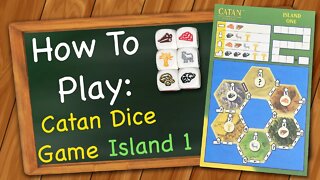 4:26
4:26
Triple S Games
3 years agoHow to play Catan Dice - Island 1
1371 -
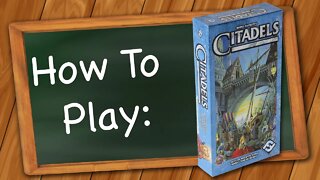 5:31
5:31
Triple S Games
8 years agoHow to play Citadels
21 -
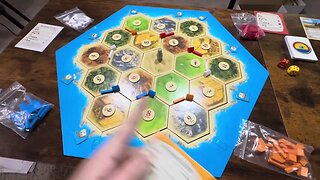 3:19
3:19
Spencer Does Reviews
6 months agoFavorite Board Game | Catan | Hust Have | Review
27 -
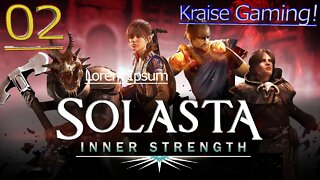 1:18:09
1:18:09
KraiseGaming
1 year ago#02: That Will Teach Those Bandits! - Solasta: Crown of the Magister - By Kraise Gaming!
212 -
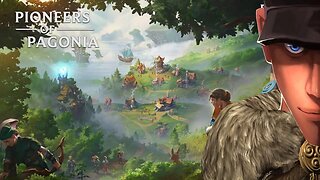 45:22
45:22
NeoDyinamite
7 months agoPioneers of Pagonia - Settlers Cousin - Playtest | Let's play Pioneers of Pagonia Gameplay
22 -
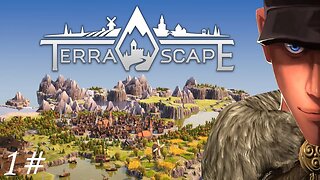 35:34
35:34
NeoDyinamite
1 year agoTerraScape - Puzzle and city building!! Part 1 | Let's play TerraScape Gameplay
18 -
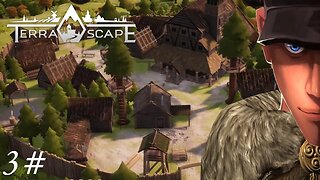 36:50
36:50
NeoDyinamite
10 months agoTerraScape - Idyllic Island - MORE MERGED BUILDINGS! | Let's play TerraScape Gameplay
75 -
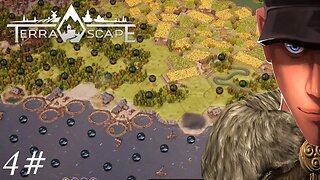 41:20
41:20
NeoDyinamite
9 months agoTerraScape - Advanced Atoll - Fishing a lot! | Let's play TerraScape Gameplay
34 -
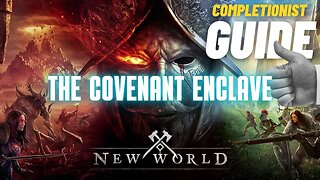 2:08
2:08
MicGaming
8 months agoThe Covenant Enclave New World
1 -
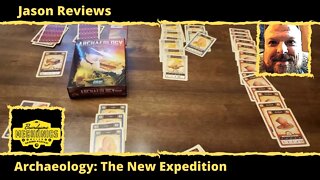 10:55
10:55
The Boardgame Mechanics
1 year agoJason's Board Game Diagnostics of Archaeology: The New Expedition
117